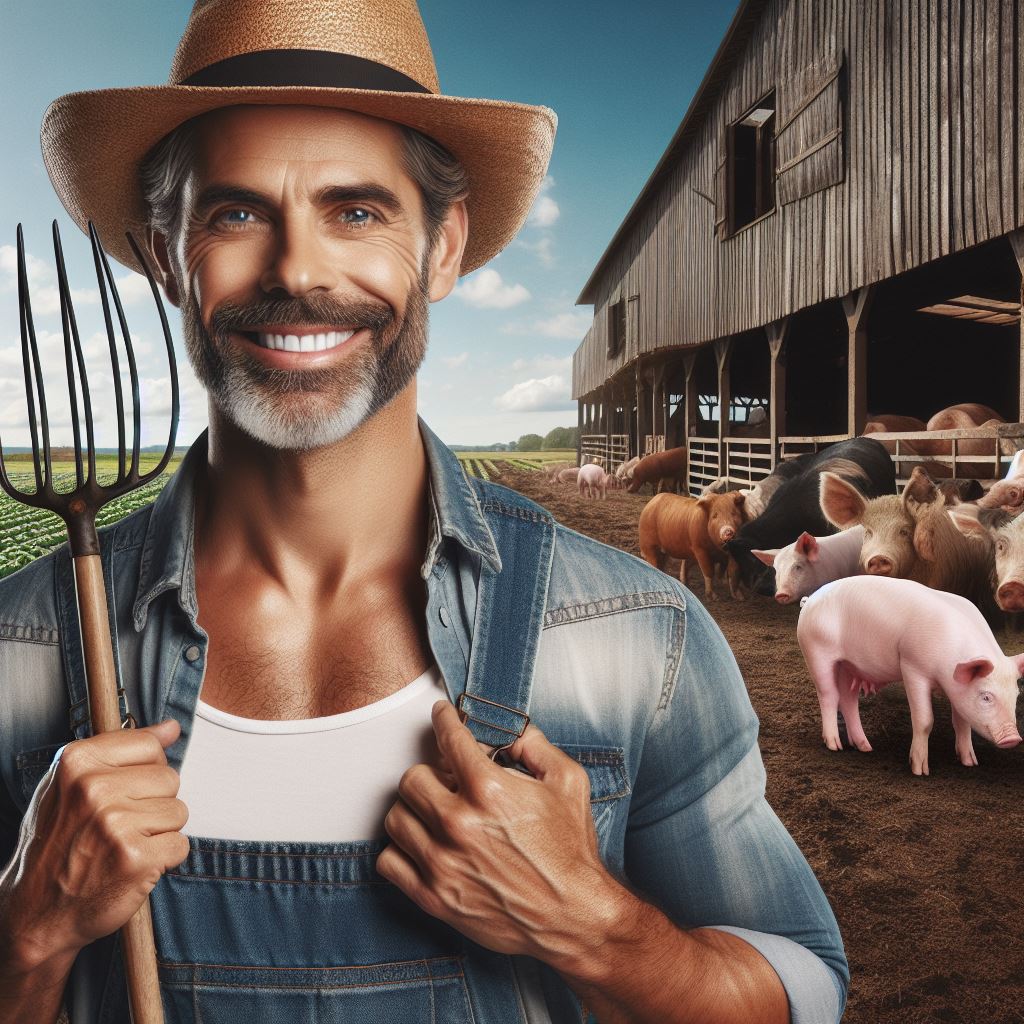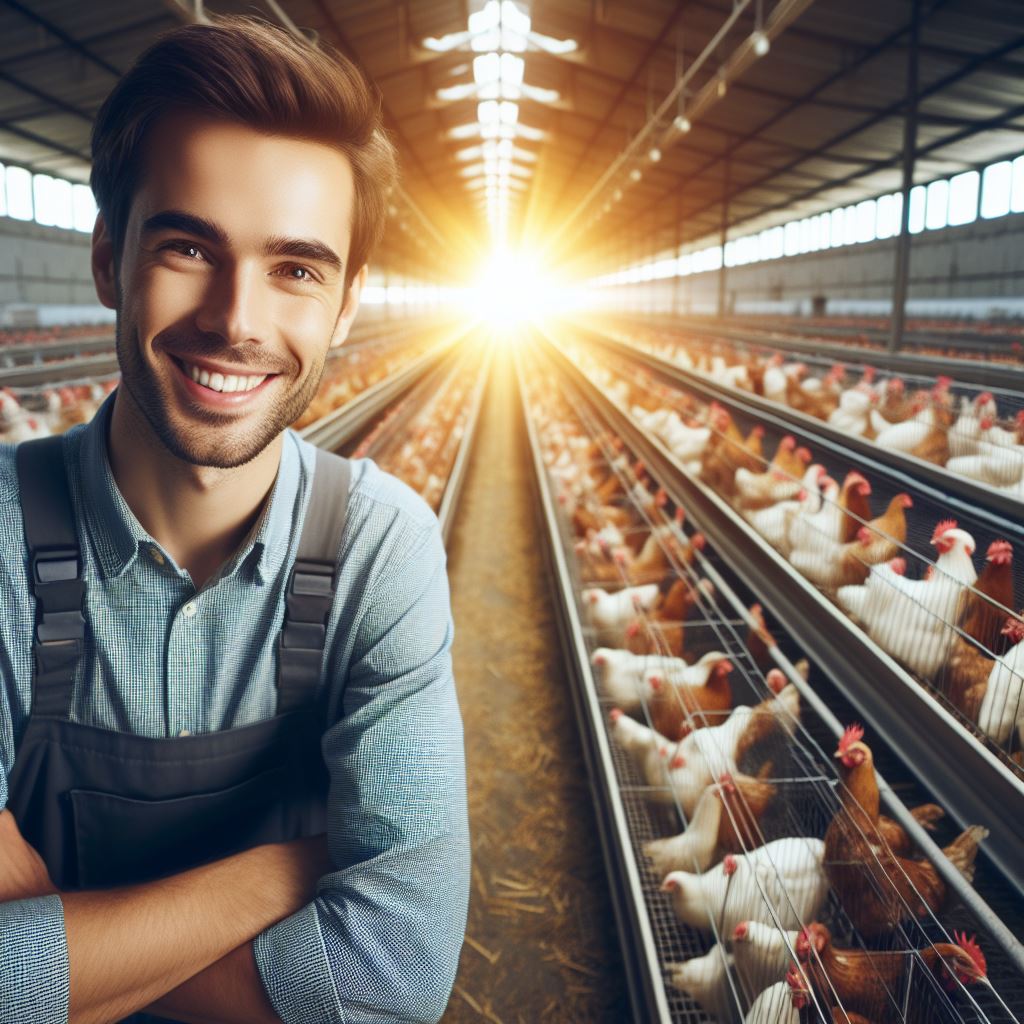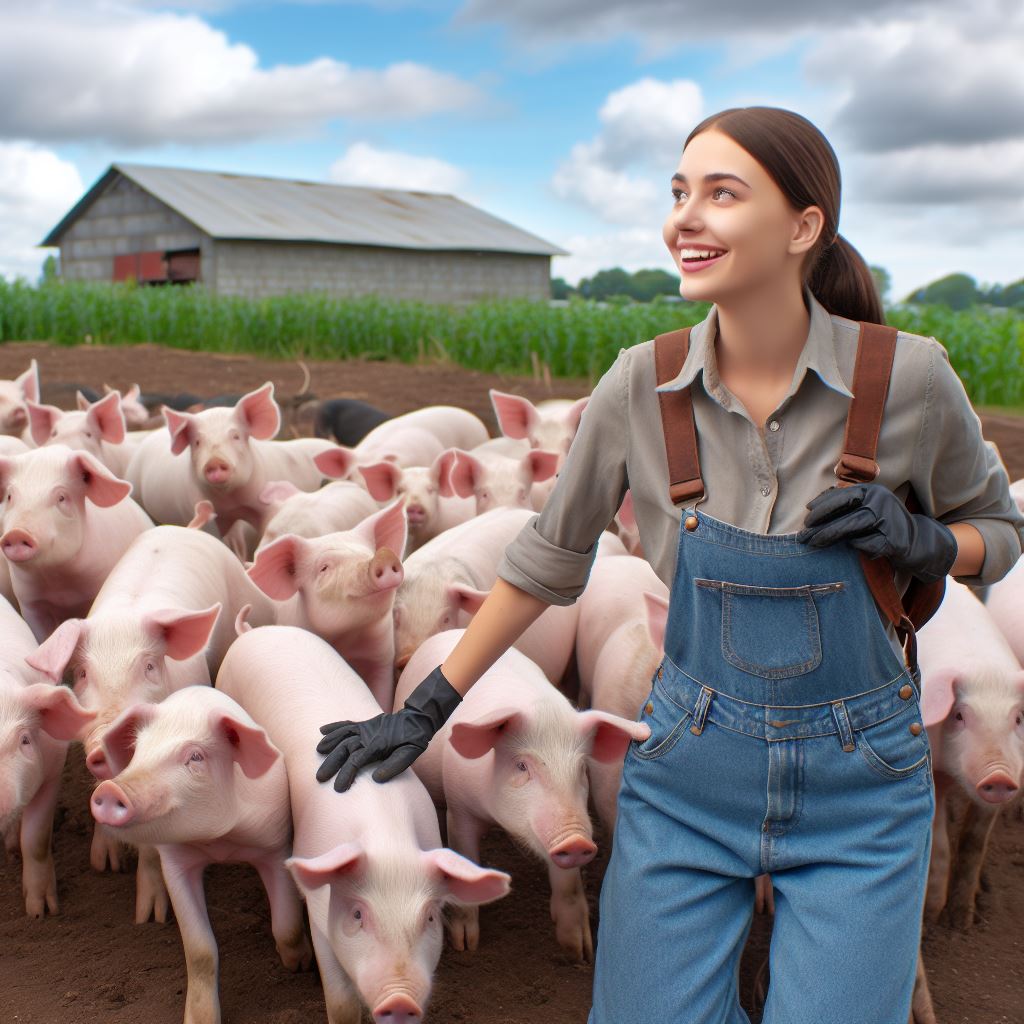Introduction
Sustainable livestock farming refers to a method of raising animals that minimizes environmental impact while ensuring long-term profitability.
It plays a vital role in today’s world as it addresses environmental concerns and promotes ethical farming practices.
A. Definition of sustainable livestock farming
Sustainable livestock farming focuses on balancing the needs of livestock production with the preservation and regeneration of natural resources.
It aims to provide food security while minimizing negative impacts on the environment.
B. Importance of sustainable livestock farming in today’s world
In today’s world, sustainable livestock farming holds immense significance.
It mitigates climate change through reduced greenhouse gas emissions and promotes biodiversity conservation.
Additionally, it ensures the ethical treatment of animals and safeguards human health by reducing the use of antibiotics and chemicals in livestock farming.
The active adoption of sustainable livestock farming practices promotes soil health and prevents soil erosion.
It also encourages the efficient use of water resources by implementing proper irrigation systems and managing wastewater.
Furthermore, sustainable livestock farming contributes to the rural economy, creating employment opportunities and supporting local communities.
By implementing sustainable livestock farming tactics, we can combat deforestation and land degradation while preserving ecosystems.
This approach minimizes pollution by managing manure and waste disposal effectively.
It also emphasizes responsible consumption and waste reduction throughout the entire livestock production and supply chain.
In essence, sustainable livestock farming is essential to address the environmental challenges we face today.
By adopting sustainable practices, we can ensure a healthier and more secure future for both animals and humans, promoting a balanced ecosystem and a sustainable planet.
Transform Your Agribusiness
Unlock your farm's potential with expert advice tailored to your needs. Get actionable steps that drive real results.
Get StartedBenefits of Sustainable Livestock Farming
- Reduced environmental impact: Sustainable livestock farming practices help minimize the negative effects on the environment.
- Conservation of natural resources: By adopting sustainable farming tactics, we can use resources such as water and land efficiently.
- Lower greenhouse gas emissions: Sustainable livestock farming techniques reduce the release of greenhouse gases into the atmosphere.
- Preservation of biodiversity: Sustainable farming methods help protect and preserve the diverse range of animal and plant species.
- Improved animal welfare: Sustainable livestock farming emphasizes the ethical treatment and well-being of animals.
- Ethical treatment of animals: Sustainable farming aims to provide animals with a safe, comfortable, and natural environment.
- Healthier and happier livestock: Through sustainable practices, livestock can have better overall health and well-being.
- Enhanced economic stability: Sustainable livestock farming contributes to the long-term stability of the agricultural industry.
- Increased profitability for farmers: By implementing sustainable practices, farmers can improve profitability and reduce costs.
- Job creation and local economic growth: Sustainable farming creates employment opportunities and boosts local economies.
Embracing sustainable livestock farming tactics reaps numerous benefits, bridging environmental health and farmer prosperity.
These practices, crafted to minimize the ecological impact of agriculture, are pivotal for constructing a resilient and sustainable future.
Sustainable livestock farming excels in reducing environmental harm, countering resource depletion and pollution endemic to conventional methods. Rotational grazing and waste management substantially alleviate adverse effects.
Conservation of natural resources, optimal water use, and soil preservation underpin sustainable farming.
Emission reduction strategies, such as methane capture, combat climate change. Biodiversity preservation and ethical animal treatment further enrich the ecosystem.
Beyond environmental gains, sustainable farming enhances animal welfare, producing superior-quality products.
Economically, it ensures stability, lowers costs, and fosters local growth. Adopting these tactics promises a vibrant, balanced planet.
Read: Latest Milking Tech: Revolutionizing Dairy Farms
Key Tactics for Sustainable Livestock Farming
A. Rotational grazing
Rotational grazing involves moving livestock to different sections of pasture to prevent overgrazing.
This practice benefits soil health by allowing grasses to recover and regrow.
It also promotes better grass productivity by providing more nutritious forage for animals.
Rotational grazing reduces the risk of overgrazing, ensuring the sustainability of livestock farms.
B. Agroforestry integration
Combining livestock with trees and crops creates a symbiotic relationship that benefits the ecosystem.
Trees provide shade and act as windbreaks, protecting animals from extreme weather conditions.
The integration of trees and crops also offers additional food sources, enhancing animal nutrition.
This practice increases carbon sequestration and improves soil quality, contributing to sustainability.
C. Resource management and waste reduction
Implementing efficient water usage and conservation techniques is crucial for sustainable livestock farming.
Proper manure management and nutrient cycling prevent water pollution and promote soil health.
Minimizing chemical inputs and reducing reliance on synthetic fertilizers lowers environmental impact.
These resource management practices reduce waste and ensure the sustainability of livestock farms.
D. Diversification and resilience
Encouraging mixed farming systems with diverse crops and livestock species enhances resilience.
Integrating different livestock species within a farm optimizes resource utilization and reduces disease risks.
Crop-livestock integration for integrated pest management reduces the need for chemical pesticides.
These diversification tactics create more sustainable and resilient livestock farming systems.
Showcase Your Farming Business
Publish your professional farming services profile on our blog for a one-time fee of $200 and reach a dedicated audience of farmers and agribusiness owners.
Publish Your ProfileBy implementing these key tactics for sustainable livestock farming, farmers can contribute to environmental conservation, maintain healthy soil, and ensure the welfare of animals.
Rotational grazing provides multiple benefits, including improved soil health, grass productivity, and reduced risk of overgrazing.
Agroforestry integration promotes ecosystem balance by providing shade, windbreak, and additional food sources for animals while enhancing carbon sequestration and soil quality.
Efficient resource management techniques like water conservation, proper manure handling, and reduced reliance on synthetic fertilizers reduce waste and environmental impact.
Finally, promoting diversification through mixed farming systems and crop-livestock integration improves resilience and reduces disease risks.
Adopting these tactics supports the long-term sustainability of livestock farms and contributes to a more environmentally friendly agricultural industry.
Read: Tech in Farming: Innovations in Livestock Care

Challenges and Solutions in Sustainable Livestock Farming Tactics
A. Availability of Knowledge and Training
Farmers face challenges due to limited access to information and training related to sustainable livestock farming.
The solution lies in promoting the importance of education and organizing awareness programs for farmers.
By offering workshops, seminars, and online resources, farmers can acquire valuable knowledge and skills.
B. Collaboration between Agricultural Institutions and Farmers
Lack of collaboration between agricultural institutions and farmers hinders the implementation of sustainable farming practices.
To overcome this challenge, partnerships and collaborations need to be established to share knowledge and resources.
Agricultural institutions can provide expertise and research, while farmers can offer practical insights and feedback.
C. Financial Constraints and Market Demand
Sustainable livestock farming practices often require initial investments that can be financially challenging for farmers.
Government support and funding opportunities can assist farmers in overcoming financial constraints.
Market demand for sustainable and ethically produced products also plays a critical role, creating a viable market for farmers.
D. Government Support and Funding Opportunities
Governments can play a pivotal role in promoting sustainable livestock farming through policy support and funding opportunities.
By allocating resources and financial incentives, governments can encourage farmers to adopt sustainable practices.
Government initiatives can help in providing access to affordable loans, grants, and subsidies for farmers.
E. Consumer Preference for Sustainable and Ethically Produced Products
Consumer demand for environmentally friendly and ethically produced livestock products is increasing.
This preference creates an opportunity for farmers to adopt sustainable practices and cater to the market demand.
Farmers can promote their sustainable farming methods, certifications, and transparency to attract environmentally conscious consumers.
F. Importance of Education and Awareness Programs
Education and awareness programs are crucial for imparting knowledge about sustainable livestock farming practices.
These programs can highlight the benefits of sustainable farming, such as reduced environmental impact and improved animal welfare.
By increasing awareness, farmers can make informed decisions and implement sustainable tactics in their livestock operations.
In summary, sustainable livestock farming faces several challenges related to knowledge availability, financial constraints, and market demand.
However, with proper education, collaboration, government support, and awareness programs, these challenges can be overcome.
The shift towards sustainable and ethically produced livestock products not only benefits the environment but also caters to the growing consumer preference for sustainable choices.
Read: Grants for Farmers: 2024 Application Tips
Conclusion
Sustainable livestock farming is crucial for the well-being of both animals and the planet.
Throughout this blog post, we have explored various benefits and tactics of sustainable farming.
This includes reduced greenhouse gas emissions, efficient resource utilization, and improved animal welfare.
A. The significance of sustainable livestock farming
It is imperative for farmers to embrace sustainable practices in order to secure a better future for themselves, their animals, and the environment.
By adopting methods such as rotational grazing, organic feed, and waste management systems, farmers can contribute to a healthier and more resilient agricultural system.
Furthermore, the reinforcement of the significance of sustainable livestock farming cannot be understated.
This approach not only supports ecological balance but also has economic benefits, such as increased productivity and reduced input costs.
In summary, sustainable livestock farming tactics offer a win-win situation for all stakeholders involved.
By incorporating these strategies into their operations, farmers can protect the planet, enhance animal welfare, and improve their own livelihoods.
B. Encouragement for farmers to adopt sustainable practices for a better future
Let us encourage and support farmers in their journey towards a sustainable and prosperous future.
Together, we can make a lasting positive impact on our environment and the world we live in.
Showcase Your Farming Business
Publish your professional farming services profile on our blog for a one-time fee of $200 and reach a dedicated audience of farmers and agribusiness owners.
Publish Your Profile



